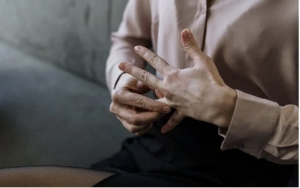When someone in the family isn't feeling well, the first question that often comes up is where to go for care. It's clearly not serious enough to rush to the emergency room (ER). But waiting days for a regular doctor's appointment doesn't seem right either.
One option that's becoming more popular for situations like this is family urgent care. It's a walk-in clinic that treats a wide range of non-life-threatening conditions for patients of all ages. It fills the gap between your primary doctor and the hospital emergency department.
Now, here's the question: What kind of health issues can an urgent care clinic handle? Read on to find out.
Common Colds
Catching a cold is almost a seasonal tradition affecting both young children and adults. Symptoms like sneezing, a runny or stuffy nose, a mild sore throat, and fatigue can make even simple tasks hard to do.
Although viruses cause most colds and tend to clear up on their own, the discomfort can linger or interfere with daily life. Instead of waiting and hoping for the best, a visit to urgent care can help. The attending family physician can confirm it's just a cold and rule out more serious infections like the flu or strep throat. They can also recommend over-the-counter medicine to help ease symptoms and speed up recovery.
If you don't know where to go, a quick search for an urgent care clinic near me can point you to a nearby location. And before your visit, be sure to evaluate the quality of their services, read online reviews, and check if they offer what you need.
Respiratory Infections
When a cold leads to chest discomfort, a persistent cough, or trouble breathing, it may be more than just a mild virus. These issues often point to infections like bronchitis, sinusitis, or mild pneumonia. They can develop after an illness or from exposure to bacteria or environmental irritants.
Family urgent care clinics can diagnose through a physical exam and, if needed, imaging. They may also prescribe medication or refer patients for further examination, depending on the situation.
Minor Cuts, Burns, Wounds
Minor injuries can happen at home, at work, or in everyday activities. When a cut, for example, needs more than a bandage but doesn't quite warrant a trip to the ER, urgent care is a practical option. Like hospitals, these clinics have trained medical staff who can clean the wound, stitch lacerations if needed, and apply proper dressings to help prevent infection.
They can also treat burns, especially first- and second-degree ones. These injuries often happen during cooking or from touching hot surfaces. Urgent care providers can assess the severity of the burn and provide appropriate medication to manage pain and reduce inflammation. You'll also receive clear instructions for home care, so the healing process continues safely.
Sports-Related Injuries
When it comes to sports-related injuries, it's not just professional athletes who deal with them. Anyone engaging in physical activity can end up getting hurt. An awkward landing, for instance, might lead to a swollen knee. Even a sudden twist while lifting weights can sprain your ankle.

The first instinct might be to head straight to a large hospital. But for injuries that aren't severe, a family urgent care center can be a quicker and more convenient choice. They can examine the injury and check for signs like swelling, bruising, or limited movement. Most of the time, they'll use a brace or elastic bandage to help stabilize the affected area.
If there's any uncertainty, they may suggest an X-ray to determine whether there is a fracture or other internal damage.
Digestive System Problems
Stomach cramps, nausea, vomiting, or diarrhea can affect how someone feels day to day. These issues often go away, but sometimes they last too long or feel too intense to ignore.
Urgent care providers can help figure out what's wrong. They might run quick tests, like urine, stool, or blood work, which can provide accurate insight into the cause. Common causes include food poisoning, a stomach virus, or simple indigestion. They can also give IV fluids right there in the clinic to help replace what the body has lost and prevent further dehydration.
Before heading home, patients receive a prescription and advice on when to return if their condition doesn't improve.
Skin Conditions and Allergic Reactions
Sudden skin issues don't always give you time to plan ahead. A rash that spreads overnight, an unexpected allergic flare-up, or a bug bite that quickly worsens can catch you off guard.
In such situations, a family urgent care clinic can be a practical first stop. The doctor will examine the affected skin and ask a few relevant questions. From there, they may provide treatment such as topical creams, oral medications, or antihistamines. These help calm the reaction and keep it from getting worse.
Ideally, you'll start to feel relief within a day or two. If the allergic reaction persists, the clinic will guide you on the next steps. That might mean coming back for a follow-up visit or getting a referral to a dermatologist for more specialized care.
Wrapping Up
There are times when a health concern is not quite an emergency but still too important to ignore. In these moments, a family urgent care clinic can be the right place to turn to. They offer a practical middle ground between the ER and a regular doctor's visit. And because no appointment is needed, getting help is often faster and less stressful.






